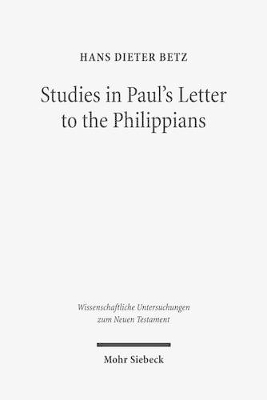Wissenschaftliche Untersuchungen zum Neuen Testament
1 primary work
Book 343
Paul's Letter to the Philippians is one of the most important but also most difficult parts of the corpus Paulinum. The main difficulties are caused by unresolved issues in the interpretation, which are reflected in the current commentary literature. In the present work, Hans Dieter Betz does not offer a full commentary, but rather seven chapters of new exegetical investigations focusing on controversial passages and issues of the letter. These chapters represent separate engagements over a period of several years and employ the standard historical-critical methodologies, including rhetorical and literary criticism. The introduction clarifies the author's understanding and use of key terminology such as text, manuscript, translation, critical-historical commentary, literary criticism, letter and letter-writing, literary integrity, and verification. As a result, the studies offer new proposals for analyzing difficult passages and issues, and lay the groundwork for understanding the letter as a whole. This letter is decisive primarily for understanding Paul's thinking and acting during his last days when he was imprisoned in Rome (ca. 62 CE). In this situation, he sees clearly what is at stake for his own "life or death", his churches, his collaborators, and the Gospel mission in the future. He took this last letter as being his final chance to set an example on facing personal catastrophe, even raising the question as to whether or not everything had been in vain. He wrote in retrospect of his entire life, but also looking forward to beyond his own death.
